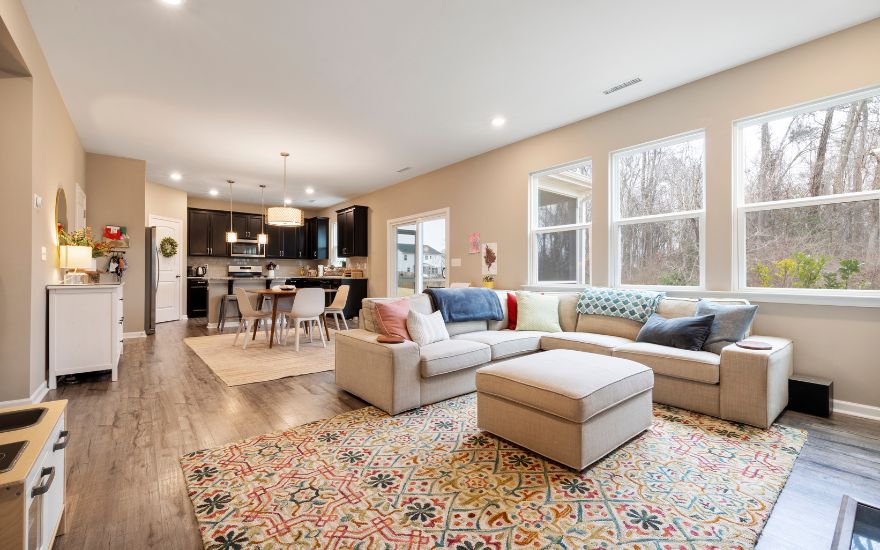If you’re planning a getaway to one of the world’s most glamorous cities, there’s a good chance you’re already dreaming of poolside views, iconic skylines, and modern luxury. Whether you’re in Dubai for a short-term visit or an extended stay, finding the perfect place to stay can make all the difference. Many travelers are now skipping traditional hotel bookings and opting for more personalized and spacious alternatives — vacation homes in Dubai offer a unique experience tailored to comfort, convenience, and style.
With a growing number of travelers seeking home-away-from-home experiences, the demand for vacation homes in Dubai has skyrocketed. This trend offers a rare combination of privacy, luxury, and affordability. No matter your budget or travel preference, you’re sure to find a vacation rental that suits your needs. In this blog, we’ll explore the top neighborhoods where you can rent vacation homes in Dubai, what makes each area special, and how to choose the best one based on your travel goals. From family-friendly zones to trendy urban locales, this guide will help you navigate the options with ease. Read on to discover your perfect vacation home, and when you’re ready, check out our luxury vacation home listings to find your ideal retreat.
Things to Know Before Renting Vacation Homes in Dubai
Before diving into the best locations, it’s essential to understand a few important aspects of renting vacation homes in Dubai. This will help you make more informed choices and avoid common pitfalls while maximizing your stay.
Legal Regulations for Vacation Rentals in Dubai
Dubai has a strict regulatory framework governing vacation rentals to ensure quality, safety, and accountability. All holiday homes must be registered with the Dubai Department of Economy and Tourism (DET). This means you should always book through licensed providers to avoid legal and service-related issues.
Working with certified property managers or platforms ensures your stay meets official standards for safety, hygiene, and customer satisfaction. Be wary of unlicensed listings on unofficial websites or social media platforms. They might seem cheaper initially, but they can lead to complications that disrupt your vacation experience.
Types of Vacation Homes Available
Vacation homes in Dubai come in many forms, ranging from budget-friendly apartments to sprawling luxury villas. Common types include studio apartments, one- to three-bedroom units, penthouses, and beachside villas. Each caters to a different kind of traveler, from solo tourists to large families or corporate groups.
You’ll also find themed properties, serviced apartments, and pet-friendly rentals. This variety means you can choose an experience tailored to your lifestyle, whether you want a quiet retreat or a vibrant hub in the heart of the city.
Cost and Pricing Trends
The cost of vacation rentals in Dubai varies widely based on location, size, amenities, and season. Peak periods like New Year’s, winter holidays, and major events such as Expo or Dubai Shopping Festival generally see a price hike.
On average, nightly rates can range from AED 250 for basic apartments to AED 5,000+ for ultra-luxury villas. Booking early and during off-peak months can lead to significant savings, especially for longer stays. Some platforms also offer discounts for weekly or monthly rentals, making it even more economical.
Accessibility and Transport Options
When choosing a vacation home, consider proximity to public transport like the Dubai Metro or major highways like Sheikh Zayed Road. Being well-connected can make exploring the city easier and reduce commuting time, especially if you’re not renting a car.
Additionally, some areas offer water taxis, shuttle services to malls, or even bike rentals. These transport perks can enhance your mobility and overall convenience while navigating Dubai’s urban sprawl.
Booking Through Trusted Platforms
Always use trusted platforms like bnbmehomes.com, Airbnb, or Booking.com to rent your vacation home in Dubai. These platforms offer transparent pricing, user reviews, and secure payment systems.
Trusted platforms also ensure that the vacation homes listed are maintained to a high standard and provide support in case of issues during your stay. For tailored experiences, consider working with vacation rental specialists like bnbme, who offer concierge services, itinerary planning, and customized recommendations.
Top Neighborhoods to Rent Vacation Homes in Dubai
Downtown Dubai: For Iconic Views and City Life
Downtown Dubai is home to some of the city’s most famous landmarks, including the Burj Khalifa, Dubai Mall, and Dubai Fountain. Vacation homes in this area offer breathtaking skyline views and instant access to shopping, dining, and entertainment.
Ideal for travelers who want to immerse themselves in the vibrant urban life, this area is well-connected and packed with luxury apartment options. Staying here gives you front-row seats to fireworks during special events and a pulse on the city’s modern lifestyle. High-end rental options with amenities like gyms, spas, and infinity pools are widely available.
Dubai Marina: For Beachside Living and Nightlife
Dubai Marina is a top choice for travelers who enjoy waterfront views, active nightlife, and proximity to beaches. The area is known for its modern skyscrapers, bustling promenade, and a wide range of cafes, restaurants, and retail outlets.
Vacation rentals in Dubai Marina are popular among young professionals, couples, and tourists looking for a lively atmosphere. With nearby access to JBR Beach and The Walk, it’s perfect for sunseekers and evening strollers alike. The marina also offers yacht tours and boat rentals, making it a top destination for adventure lovers.
Palm Jumeirah: For Luxury and Exclusivity
Palm Jumeirah is synonymous with luxury. This man-made island offers high-end villas and apartments with private beaches, pools, and stunning sea views. It’s a go-to destination for celebrities and affluent travelers seeking ultimate privacy.
Vacation homes here are ideal for special occasions or extended luxury getaways. While prices are on the higher side, the experience is unparalleled. Expect private beach access, top-tier amenities, and quick access to resorts like Atlantis The Palm. Spa treatments, fine dining, and water sports are also part of the Palm lifestyle.
Jumeirah Beach Residence (JBR): For Family-Friendly Stays
JBR combines the best of beach living with city convenience. Its beachfront boulevard, known as The Walk, is filled with shops, playgrounds, and casual dining options, making it ideal for families.
Vacation homes in JBR cater to different budgets and offer easy access to the beach, kids’ play zones, and family activities. It’s a favorite among international tourists looking for a balanced, relaxing, and entertaining environment. The area also hosts weekend markets, beach cinemas, and pop-up events throughout the year.
Business Bay: For Short-Term Corporate Rentals
Located next to Downtown Dubai, Business Bay is perfect for business travelers who want a luxurious yet central stay. The area is filled with high-rise apartments and offers quick access to corporate hubs and major roadways.
Vacation rentals here often include access to workspaces, meeting rooms, and business facilities. It’s the best of both worlds for professionals — proximity to the city center and modern comforts to unwind after work. The area is also increasingly becoming a cultural hub with art galleries and fine dining.
Why Choose bnbme for Your Vacation Home in Dubai?
With countless options available, choosing the right provider can make or break your Dubai vacation. At bnbme, we pride ourselves on offering a wide range of meticulously maintained, fully licensed vacation homes across the city’s top neighborhoods.
Our portfolio includes everything from budget-friendly apartments to ultra-luxury villas, each equipped with premium amenities and supported by 24/7 concierge services. Whether you’re traveling solo or with family, we tailor your stay to match your needs — ensuring privacy, comfort, and a truly local experience.
Our team’s deep knowledge of the city helps us provide local recommendations, assist with check-ins, and offer customized services like chef-on-call, personal shopping, or airport transfers. When you choose bnbme, you’re not just booking a place to stay — you’re unlocking a seamless, customized Dubai journey from check-in to check-out.
Conclusion
Dubai is a dynamic destination offering something for every kind of traveler. From the urban hustle of Downtown to the serene shores of Palm Jumeirah, choosing the right vacation home can elevate your experience exponentially. Whether you prioritize luxury, convenience, family amenities, or nightlife, there’s a perfect spot in this city waiting for you.
Choosing a vacation home in Dubai is about more than just location — it’s about lifestyle. When you’re ready to upgrade your travel experience, browse through bnbme’s curated listings to find the perfect match. Your unforgettable stay in Dubai starts with the right home.
FAQs
- What are the best areas for renting vacation homes in Dubai?
Downtown Dubai, Dubai Marina, Palm Jumeirah, JBR, and Business Bay are among the top areas. - Are vacation homes in Dubai safe and legal?
Yes, when booked through licensed providers like bnbme, vacation homes are regulated and safe. - Is it cheaper to rent a vacation home than stay in a hotel?
Often, yes — especially for longer stays or groups, vacation homes offer better value and more space. - Can I book a vacation home for a weekend only?
Yes, short-term rentals are available, although some providers may have minimum night requirements. - Which area is best for luxury vacation homes?
Palm Jumeirah is renowned for its high-end villas and exclusive beachfront properties. - What amenities can I expect in Dubai vacation homes?
Amenities vary, but common ones include Wi-Fi, pools, kitchens, and concierge services. - How far in advance should I book a vacation home?
It’s best to book 2–4 weeks in advance, especially during peak seasons. - Are there family-friendly vacation homes in Dubai?
Yes, areas like JBR and Palm Jumeirah offer properties ideal for families with children. - Can business travelers use vacation homes in Dubai?
Absolutely. Business Bay and Downtown offer rentals with business-friendly amenities. - Where can I find verified vacation rentals in Dubai?
Visit bnbmehomes.com for a curated and trusted selection of homes.








